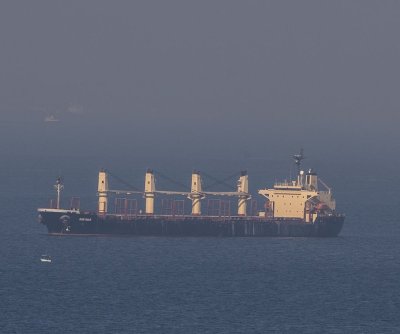Yemeni government officials have reported that the British bulk carrier M/V Rubymar, which was severely damaged by fire from Houthi rebels last month, has sunk in international waters within the Red Sea.
According to statements from Yemen’s ad hoc Crisis Management Cell, the sinking of the vessel is anticipated to result in a significant environmental crisis, impacting Yemen’s territorial waters as well as the broader Red Sea region.
The vessel, laden with 41,000 tons of fertilizer, has further exacerbated what the U.S. Central Command has described as an environmental catastrophe stemming from the “unprovoked and reckless attack by Iran-backed Houthi terrorists.”
The attack on the Rubymar occurred on February 18th through a missile strike initiated by Houthi militants, leading to the emergence of a substantial oil slick and heightened concerns regarding the potentially catastrophic consequences of its fertilizer cargo.

British ship sinking in Red Sea (Credits: Al Jazeera)
Following the assault, the Rubymar began taking on water and awaited assistance for a tow to the Saudi Arabian port of Jeddah before succumbing to the depths overnight. The crew had already evacuated the vessel after the missile attack.
Houthi militants, headquartered in Yemen, have been targeting cargo ships affiliated with Israeli companies or involved in transportation to or from Israel within the Gulf of Aden and the Red Sea since the onset of the conflict in Gaza.
Recent joint military actions by the United States and Britain against Houthi targets have prompted the Houthis to designate all British and U.S. ships as legitimate military targets.
In the aftermath of the Rubymar attack, authorities in and around the ports of Aden and Djibouti refused to accommodate the distressed vessel.























